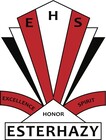The LEAP program was established in 2011 to help students who were not succeeding in school and/or were at risk of dropping out of school. LEAP was initially modelled after a "store front" school focused on academic, social and life skills.
Presently, LEAP is much more than a "store front." It has evolved into a "Flex-Ed" model which accommodates a wide range of students completing a variety of courses and programs. Currently, LEAP offers a variety of school-based distance learning courses, modified programming, and tutorial support for students. LEAP also oversees students taking GSSD Distance Learning courses and those who require Credit Rescue and Credit Recovery at the end of a semester.
